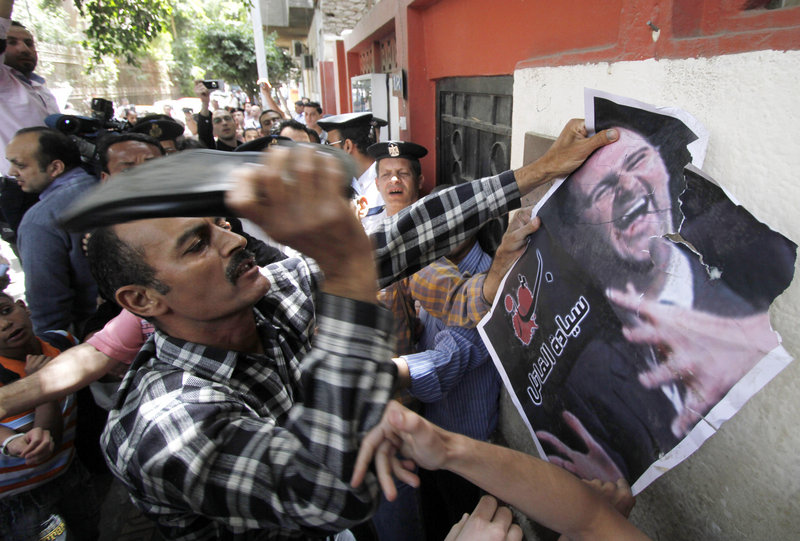BEIRUT – Syrian troops sustained their bloody crackdown against anti-government protesters in the southern town of Daraa for a second day Tuesday, drawing harsh condemnations but no specific plans for action against Damascus from U.S. and European leaders.
Reports from Daraa were sketchy because telephone lines were cut, the town was surrounded and the nearby border with Jordan was closed, but residents contacted by human rights groups indicated that government opponents were holding out in a mosque in the center of the town against an onslaught by government soldiers using tanks and armored personnel carriers.
According to Damascus-based human rights researcher Wissam Tarif, protesters were gathered in the al-Omari mosque and had turned it into a makeshift hospital for those wounded as government soldiers fired on them with automatic weapons and artillery.
Elsewhere in town, the streets were said to be deserted as tanks fired shells and snipers took up positions on rooftops, shooting at anyone who moved. The Associated Press quoted a resident as saying that the bodies of those killed were left unattended in the streets because the gunfire was so intense. Human rights groups said in statements posted on the Internet that at least 35 people had died in two days of violence.
The deployment of the army Monday in the town that had become the epicenter of the uprising against President Bashar al-Assad’s government seemed to leave little doubt that Syrian authorities have resolved to confront the escalating protest movement with full-scale repression.
With video footage showing tanks moving through the streets and plumes of smoke caused by artillery fire, the crackdown in the rural town is rapidly approaching Libyan proportions, with one crucial difference: The opposition movement in Syria is not armed.
At least 401 people have been killed in the six-week-old uprising, with an additional two dozen or so deaths awaiting confirmation from families, Tarif said.
Thousands of people have been arrested since the protests began, he said, and there were reports Tuesday of widespread detentions and a heavy troop presence in the Damascus suburbs of Douma and Moadamiya, and in the coastal town of Jableh.
The escalating violence stirred the fiercest criticism of Damascus yet from world leaders, though there was no indication that the international community was ready to take formal action to condemn or sanction a regime whose collapse many fear could trigger widespread regional instability.
In Washington, the State Department’s head of policy planning, Jake Sullivan, told reporters that Assad’s actions were “completely inconsistent with those of a responsible leader.”
But he stopped short of saying that Assad had lost the legitimacy to lead, a comment used to describe Libyan leader Moammar Gadhafi after he cracked down on protesters, and Sullivan said U.S. sanctions were an option only “under consideration.”
Copy the Story Link
Send questions/comments to the editors.



Success. Please wait for the page to reload. If the page does not reload within 5 seconds, please refresh the page.
Enter your email and password to access comments.
Hi, to comment on stories you must . This profile is in addition to your subscription and website login.
Already have a commenting profile? .
Invalid username/password.
Please check your email to confirm and complete your registration.
Only subscribers are eligible to post comments. Please subscribe or login first for digital access. Here’s why.
Use the form below to reset your password. When you've submitted your account email, we will send an email with a reset code.